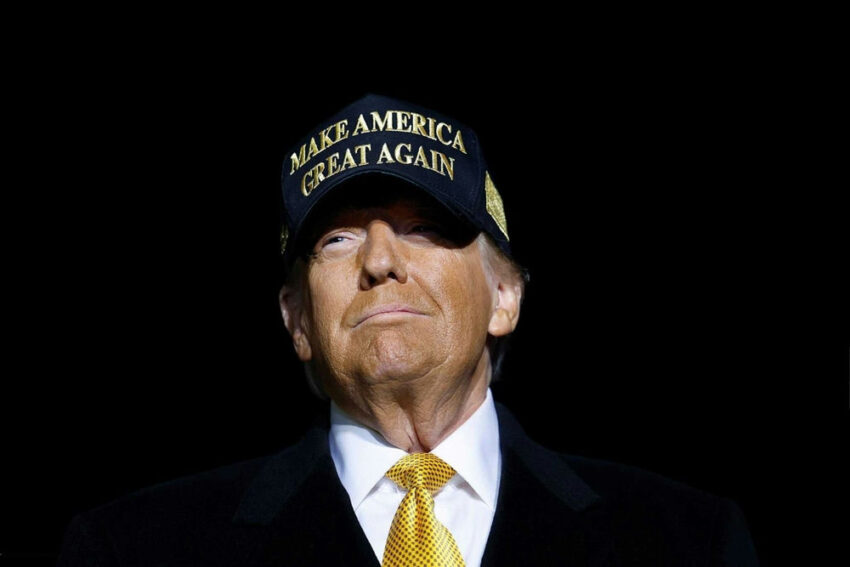President Trump’s decisive order to stockpile critical drug ingredients directly challenges years of dangerous reliance on foreign pharmaceutical supplies, marking a major reversal from past policies that left Americans vulnerable to shortages.
Trump’s Stockpiling Directive: Reasserting National Security in Medicine
In August 2025, President Trump directed the Department of Health and Human Services to build a six-month reserve of advanced pharmaceutical ingredients (APIs) for medicines critical to national health. This bold action comes after years of warnings about America’s dependence on foreign sources—particularly China and India—for essential drug components. With only 10% of APIs currently produced domestically, the administration’s move is a direct response to vulnerabilities exposed during recent global crises and a clear message that the days of outsourcing American health security are over.
The administration is also signaling its seriousness by threatening tariffs as high as 250% on imported drug ingredients. This policy is designed not only to shore up the Strategic National Stockpile but also to stimulate American pharmaceutical manufacturing and restore control over the supply of life-saving medications. Trump’s order prioritizes both immediate preparedness and the long-term goal of ending the dangerous cycle of dependence on countries that do not share America’s interests or values. The government’s actions reflect a sharp break from previous administrations that often prioritized global supply chains over national resilience.
A Legacy of Shortages: Why the Stockpile Matters Now
The Strategic National Stockpile (SNS), managed by the Department of Health and Human Services, was established in 1999 to prepare for bioterror threats but has repeatedly been tested by real-world emergencies. During the 2020 COVID-19 pandemic, Americans saw firsthand the perils of relying on overseas producers for personal protective equipment, ventilators, and critical medications. Hospitals and states scrambled to compensate for federal shortfalls, and many patients endured delays or shortages of medicines. The Trump administration’s new mandate is an explicit acknowledgment that the U.S. cannot afford to repeat the mistakes of the past, especially as global instability and foreign adversaries threaten supply chains.
While government agencies are ramping up procurement and storage, the private sector has also stepped in to meet surging consumer demand for preparedness. Companies like The Wellness Company are marketing emergency drug kits directly to Americans, offering medications such as oseltamivir, hydroxychloroquine, ivermectin, and others. These kits appeal to individuals who no longer trust that the government alone will keep them safe during crises. Physicians like Dr. Jim Thorp and Dr. Peter McCullough have publicly encouraged families to build their own reserves, especially after the public’s experience with shortages and bureaucratic delays in recent years.
Tariffs, Manufacturing, and the Debate Over Self-Reliance
By threatening tariffs up to 250% on imported APIs, the Trump administration aims to create powerful incentives for companies to produce essential pharmaceutical ingredients on American soil. This approach is expected to generate jobs, stimulate investment in domestic manufacturing, and reduce the risk of future shortages. However, some experts warn that tariffs and reshoring could lead to higher drug prices in the short term—a tradeoff that many see as worthwhile to regain national control and security. Hospitals and healthcare providers generally support more robust stockpiling efforts but stress that true resilience requires a comprehensive strategy, including regulatory reform and a reliable domestic workforce.
There is also ongoing debate about the role of government versus individual responsibility in preparedness. While the Strategic National Stockpile is intended for rapid deployment during emergencies, recent experience has shown that federal reserves may not always reach every community in time. This has fueled a growing market for private preparedness solutions, with Americans seeking peace of mind by stockpiling medications for their own families. Critics argue that this trend could create inequities and risks associated with improper storage or use, but supporters counter that personal responsibility is a core American value, especially when government systems have shown their limits.
What’s Next: Impacts, Challenges, and Conservative Priorities
Trump’s order is already reshaping the pharmaceutical landscape, with government and private enterprise working in tandem to address persistent gaps in the drug supply chain. In the short term, Americans may see increased government spending on domestic production and heightened demand for emergency drug kits. Over the longer haul, the hope is that a stronger domestic pharmaceutical sector will bolster national security, create jobs, and ensure reliable access to essential medicines—no matter what challenges arise abroad. The debate over the best balance between government action and individual responsibility will continue, but for now, Trump’s policy marks a clear return to common-sense priorities: American sovereignty, family preparedness, and the right to security in uncertain times.
Ultimately, the administration’s strategy is a pointed rejection of globalist complacency and a renewed commitment to putting American lives and values first. As the nation rebuilds its defenses against future crises, the lesson is unmistakable: Americans must never again be left vulnerable by the failures of distant supply chains or unaccountable bureaucrats. With decisive leadership, the country can restore both its health security and its founding principles of self-reliance and preparedness.
Sources:
MedTech Dive: Overview and history of the Strategic National Stockpile
DC Health: SNS mission and bioterrorism preparedness
Monroe County Health: SNS logistics and public access
Health Evolution: Hospital and provider stockpiling trends post-COVID-19
Click this link for the original source of this article.
Author: Editorial Team
This content is courtesy of, and owned and copyrighted by, https://www.conservativecardinal.com and its author. This content is made available by use of the public RSS feed offered by the host site and is used for educational purposes only. If you are the author or represent the host site and would like this content removed now and in the future, please contact USSANews.com using the email address in the Contact page found in the website menu.





